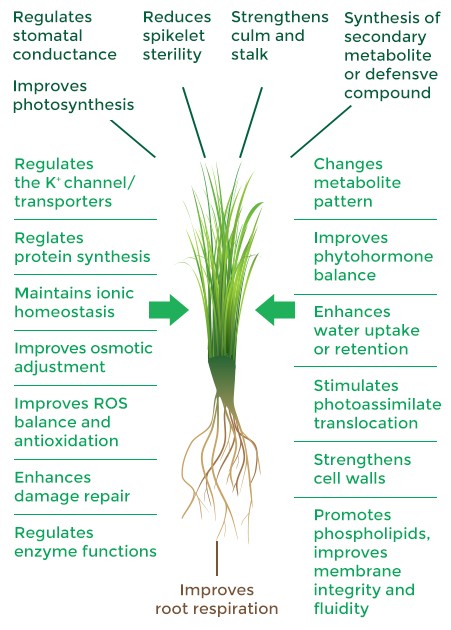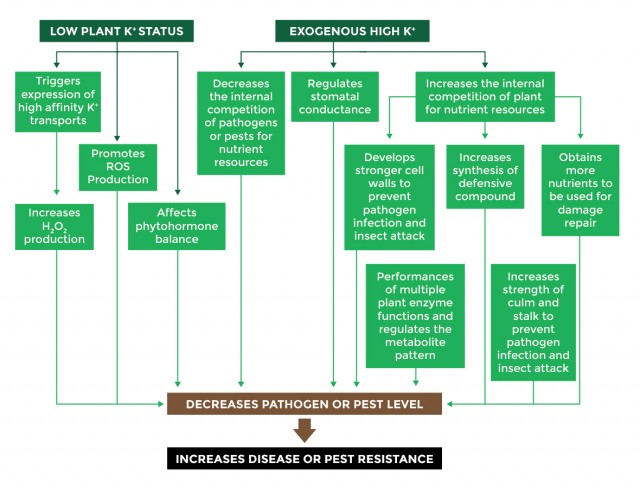Know Your Nutrients: Potassium
Potassium (K) is a primary (macro) nutrient that functions as a regulator within a plant’s cells, improving the overall quality and resilience of the crop.
Potassium aids in photosynthesis and the functioning of chlorophyll; helps form and translocate starches, sugars and fats; and supports enzyme actions and the formation of proteins.
This macronutrient also helps encourage strong plants by building cellulose, regulating internal cell pressure and maintaining the balance of water in cells, reducing wilting and respiration and increasing drought tolerance.
All crops can be sensitive to potassium deficiency, especially when the soil is cold early in the season or during drought conditions. Compacted soils are also more prone to induce potassium deficiency in the crop.
Potassium deficiency presents itself with light green and yellow older leaves which develop into leaf scorch. Also keep an eye out for poorly developed roots, stunted growth, weakened stalks and misshapen seeds and fruit; lodging is common in cereal crops.
Continuously cropped soils with low levels of organic material, high Mg content, heavily limed soils, and light sandy soils will likely have insufficient potassium. Periods of drought, or prolonged periods of heavy rain in some soils, can also affect the availability of potassium.
The Solution
If soil tests indicate a potassium deficiency, or when you are seeding into less-than-ideal conditions, consider priming your seeds.
OMEX Primers are formulated with high concentrations of potassium, phosphorus, zinc and other micronutrients to deliver a balanced nutrient package when and where seedlings need it most. Plants emerge and establish earlier, with stronger roots and stalks, giving them an advantage over competitive weeds.
In established crops, try a liquid foliar fertilizer.
Liquid K, K25 and K50 are great options as foliar potassium fertilizer. They are formulated to allow faster potassium uptake and translocation to prevent or correct potassium deficiency, and improve nitrogen use efficiency and tolerance to disease and pests. In tuber crops, K50 increases size, marketable yield and processing qualities, as well as tolerance to drought and frost.
Talk to your retailer or OMEX sales representative for more information on how potassium can get your crop off to a strong start and help it reach its full potential.
In our next post: Sulfur – a important nutrient needed from emergence to crop maturity.


